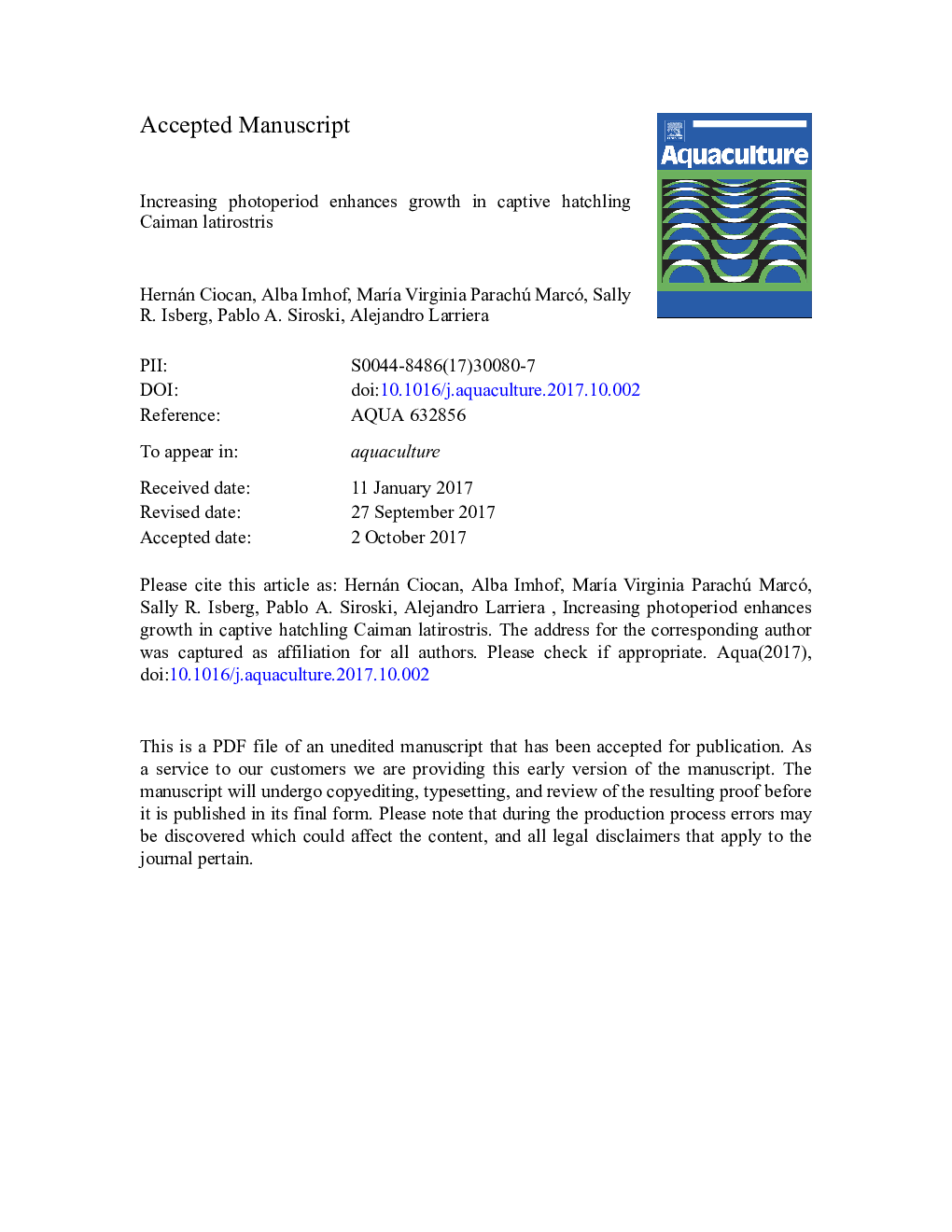| Article ID | Journal | Published Year | Pages | File Type |
|---|---|---|---|---|
| 5539118 | Aquaculture | 2018 | 19 Pages |
Abstract
Captive crocodilians reduce their intake of food during cold periods, even when kept under controlled conditions and fed ad libitum. These manifestations may be due to photoperiod length which is known to influence circadian rhythm. To test this hypothesis, 72 Caiman latirostris hatchlings from three wild-harvested nests, were reared under controlled conditions of temperature and humidity with varying hours of light exposure. Three treatments were performed: A) increasing photoperiod to 16 h light; B) decreasing photoperiod to 8 h light; C) and the control treatment with constant 12 h light / 12 h dark. Caiman growth was measured as both weight and linear measures (snout-vent length and total length). Individuals from the increased photoperiod treatment group (16 h) showed a significant increase in all growth parameters compared to other treatments (control = 12 h; reduced photoperiod = 8 h). There was no difference in stress (plasma corticosterone levels) between the treatment groups ensuring that the additional growth benefit was not antagonistic to welfare. From this, it can be postulated that photoperiod, along with availability of temperature, is another important factor which influences the growth of C. latirostris.
Related Topics
Life Sciences
Agricultural and Biological Sciences
Aquatic Science
Authors
Hernán Ciocan, Alba Imhof, MarÃa Virginia Parachú Marcó, Sally R. Isberg, Pablo A. Siroski, Alejandro Larriera,
